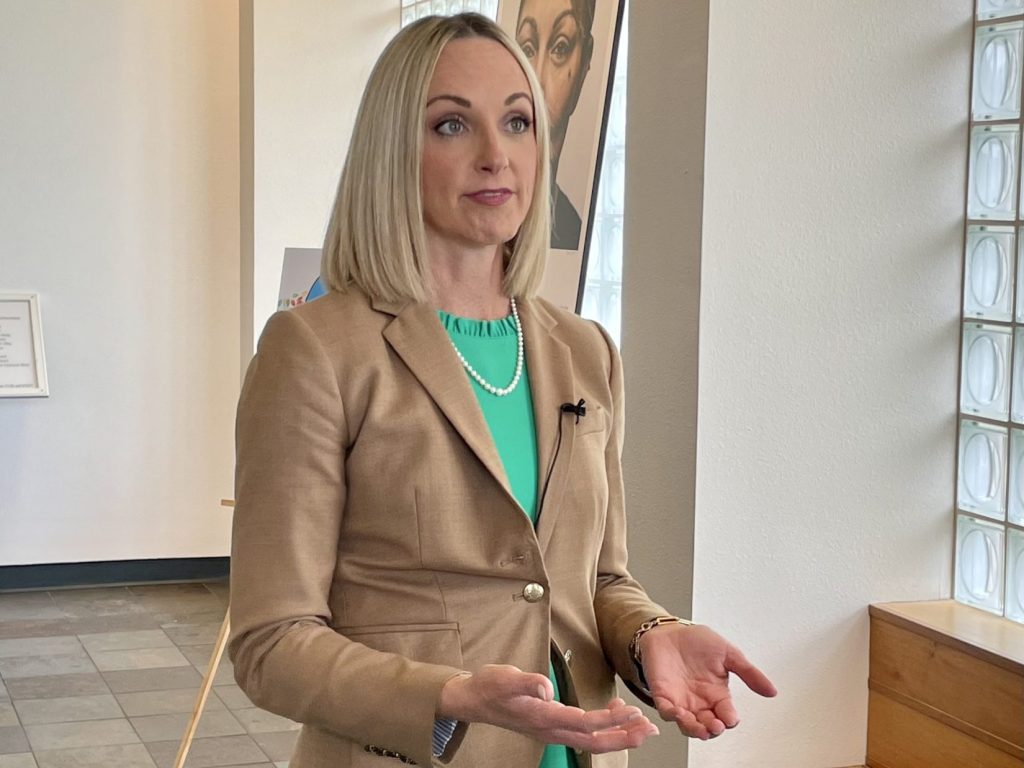Missouri’s suicide rate is worse than the national rate, and Springfield’s is worse than both of those. About 22 people per 100,000 residents take their lives annually in Springfield, meaning someone dies by suicide every 5.5 days in the city.
The alarming statistic was among several public health officials pointed to last May in calling for improved mental health services in Springfield and the surrounding Ozarks region. On Monday, the Community Foundation of the Ozarks announced a grant program designed to help answer that call.
CFO is offering up to $600,000 over three years to fund programs designed to improve mental health access in the Springfield metro area, with the ultimate goal of reducing the city’s suicide mortality rate. The foundation announced the request for proposals for its new Advancing Mental Wellness program on World Mental Health Day.
“Here in the Springfield community, every 5.5 days, someone is dying of suicide,” Aaron Schekorra, public health information administrator for the Springfield-Greene County Health Department, said in a news release announcing the program. “Thankfully, the report also showed that there is the leadership, momentum and resources in place in our community to make positive change on this issue and create better mental health for our community.”
Grant program tied to health assessment report

The foundation initiative is tied to the latest Springfield Community Regional Health Assessment report. The report identified three public health areas — mental health, diabetes and substance use and recovery — that challenge area residents and responders alike. Public health officials say each issue is in need of targeted solutions over the coming three years, both from inside and outside of medical communities.
Addressing mental health issues ranks at the top of the community priority list, in part because of the area’s high — and climbing — suicide mortality rate. The regional health assessment is released every three years. The 2019 report measured the Springfield area suicide mortality rate at 17.5 people per 100,000 residents. The rate released in each report is based on the most recent four years of data available in the Centers for Disease Control and Prevention WONDER database.
Trending the wrong way: Springfield’s suicide mortality rate is worse than state and national rates, and it’s also worse than the last time a Springfield Community Regional Health Assessment report measured it. And the time before.
As the foundation referenced in a news release about the Advancing Mental Wellness program, other area hospital and public health data also underscore the need.
People in Springfield and the Ozarks experience poor mental health and depression at higher rates than state and national averages as well. CFO’s release notes that 28 percent of all area emergency room visits were linked to mental health or substance use issues and that the area’s Black residents in need of emergency care are diagnosed with mental illnesses at rates double that of any other race group in Springfield.
CFO is seeking to fund programs “which provide lasting impact in improving access to and a reduction in stigma of seeking mental health care for individuals suffering from mental illness” in Springfield, according to the request for proposal form. The foundation has dedicated $200,000 annually for three years to the effort. Initial concept letters are due Dec. 15, and the grant announcement is tentatively scheduled to take place in late April. Requests may be made to receive up to the entire $200,000 in first-year funding. Each program initially funded by the Advancing Mental Wellness program will have the opportunity to renew grants for two additional years.
According to the foundation, the ideal applicant “will propose solutions to reduce the stigma surrounding mental illness with the overarching goal of reducing the suicide mortality rate.”

